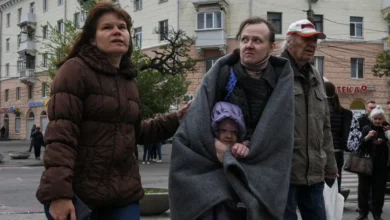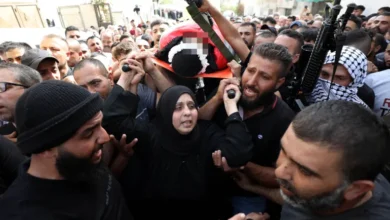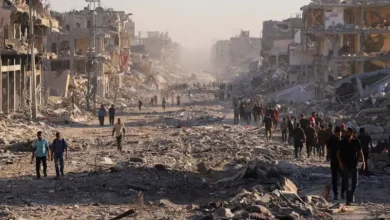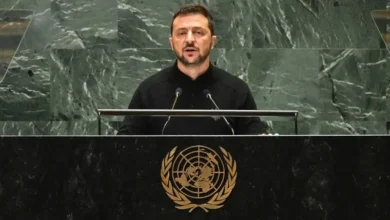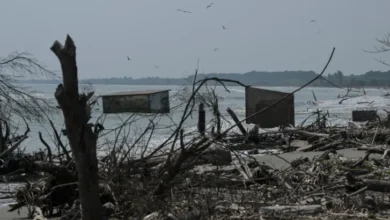Bathing once every 10 days: The reality of northern Gaza’s water crisis
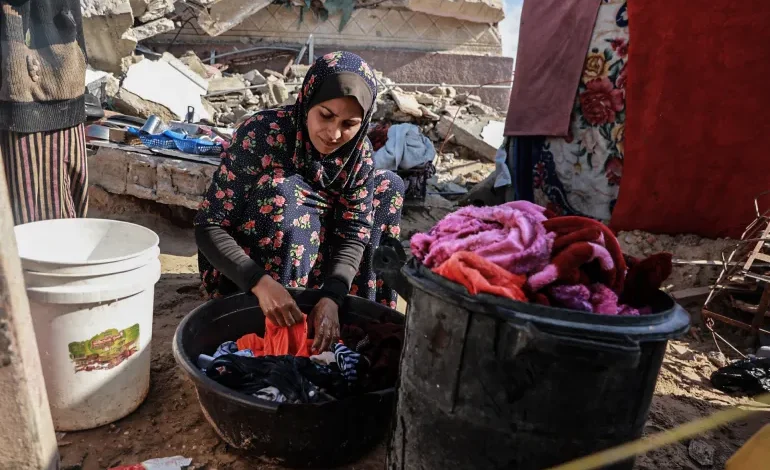
Amid towering piles of rubble and destruction, mother of five Faten Abu Haloub, her family and her in-laws have set up adjacent tents on the ruins of what used to be their extended family home.
Her husband Karam’s parents – 60-year-old Dalal and 65-year-old Nasser – have eight children, three sons and five daughters, of whom two still live at home.
Home is now the little tent next to Karam and Faten’s with a fire pit in front and makeshift “zones”.
There’s the kitchen – no more than a few wooden planks to rest cooking utensils and their meagre food supplies on – near the fire.
Off to the side is the bathroom, a stone-lined hole dug in the sand that serves as a latrine with more stones marking out a tiny bathing area, the whole section shielded by blankets draped over sticks stuck upright in the ground.
Stacked up everywhere are water jugs and buckets for collecting water, which has become the family’s daily struggle.
Severe water shortages have plagued the area, which have become more apparent since displaced residents began returning to their homes when the ceasefire between Israel and Hamas began on January 19. Oxfam says water supplies are at 7 percent of pre-conflict levels as Israel’s bombing of the besieged enclave destroyed water and sanitation infrastructure.
Struggling for water
Faten, 28, and Karam, 39, start their mornings carrying their buckets to fill from communal pipes or whatever other source of water they can find.
Sometimes, Karam’s parents join them in hauling and searching for water, something unheard of in Gaza’s traditional society, in which elders do not perform such physically demanding tasks. Younger family members typically do them.
However, the war has upended all conventions. With resources stretched thin and survival at stake, everyone, including the elderly and small children, is forced to contribute.
Karam’s two brothers who live in tents nearby bear the primary responsibility for securing water, but when water runs out, the entire family goes out in all directions to look for more.
Throughout Israel’s more than 15-month war on Gaza, Faten’s family had stayed on in the north, braving the intense bombardments until they were forced to flee to western Gaza City in October when a large-scale Israeli ground offensive in the north began and lasted three months.
“We didn’t want to leave. … We were among the last people to stay in the north,” Faten says.
